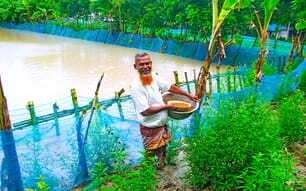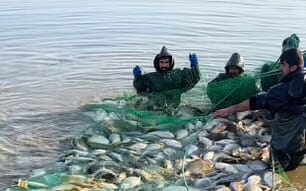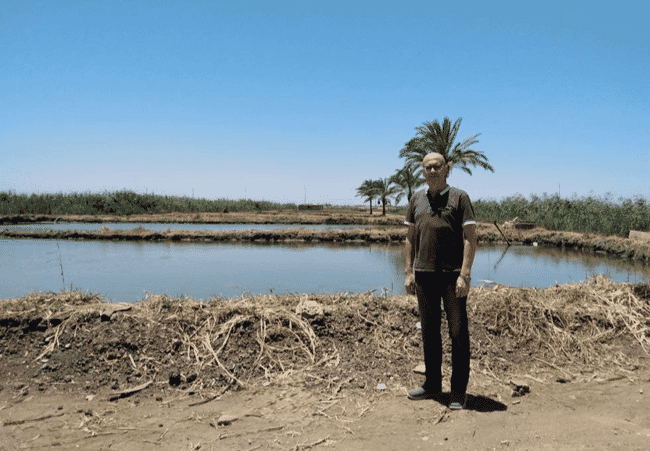
Can you briefly describe your aquaculture career?
After I graduated from the Faculty of Agriculture at Kafr El-Sheikh University, I started at Al-Zawiya farm, which is affiliated with the General Authority for Fish Resources Development. When I left it I had the opportunity to learn from professors in the field, such as Ezzat Zahran and Ismail Radwan, on mono-sex tilapia production technology. I established my own tilapia hatchery in the early 1990s.
What sort of production systems do you operate?
I now own two tilapia hatcheries in Kafr El-Sheikh governorate. The first one is 7 acres, consisting of 30 concrete basins (3m x 8m), 16 basins (6m x 20m), and 10 earthen ponds of about 1,000 metres each. The second covers five acres, consisting of 60 concrete basins (3m x 8m) and 11 basins (6m x 20m), in addition to seven earthen ponds with an area of 1,000 metres.
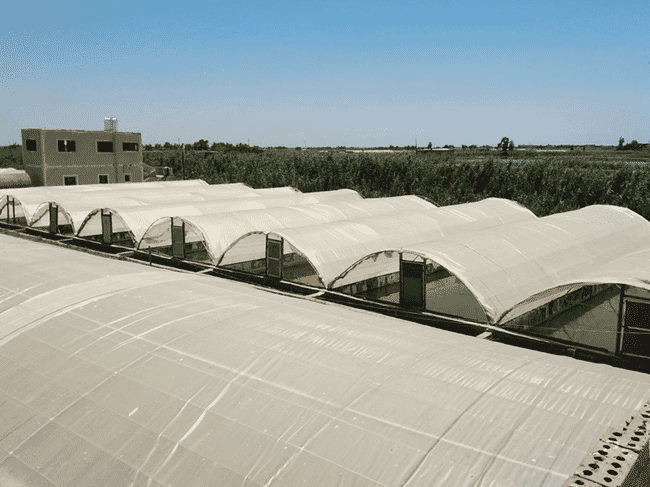
Al Sharaki's concrete basins at both of his hatchery facilities measure 3m x 8m
What was your goal and what challenges did you have to overcome?
The main goal was to provide juveniles for my own farm and sell any surplus, but we now sell all our fry. Aquaculture in the 1990s went through a remarkable level of progress and there were no problems in establishing the hatcheries. The area, Tulumbat No 7, contains about 70 percent of Egypt’s fish hatcheries, large grow-out farms, and the Kafr Alsheikh Fish Stock Exchange, the most important fish market in Egypt.
What species, in what volumes, do you produce per year?
We currently produce about 10 million Nile tilapia fry per year. In the past we also tried to breed Oreochromis aureus (blue tilapia) crossed with Oreochromis niloticus (Nile tilapia). We succeeded in producing fry, but we stopped recently.
The original goal was to produce a pure strain of blue tilapia, then cross the males with Nile tilapia females to produce a mono-sex strain. We succeeded in that and produced a large percentage of males, at a rate exceeding 80 percent. But the quantities of fry produced from hybridisation were lower than the production of non-hybrid fry, and the price was lower too.
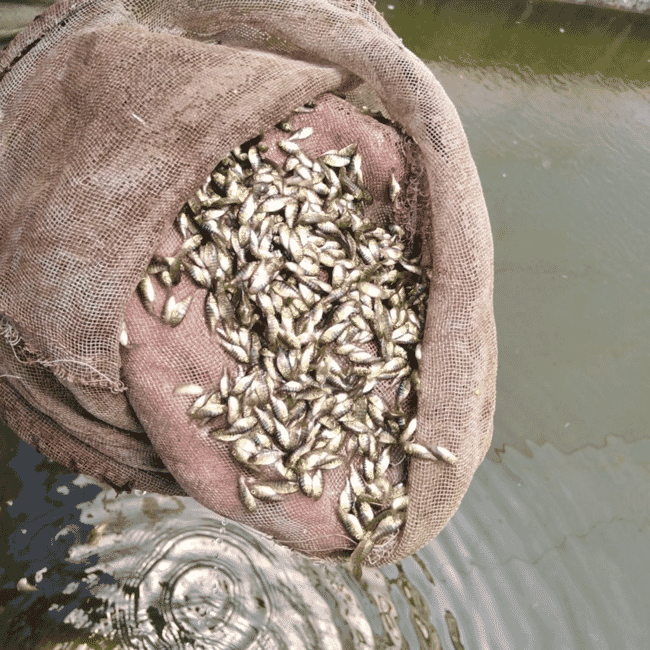
Al Sharaki currently produces about 10 million Nile tilapia fry per year
What are the key considerations for setting up a hatchery?
An economic feasibility study, to asses if the cost of establishing a hatchery will be covered by the profits, and finding people who can manage the hatchery. This is not a major problem because in Egypt there are many technical experts and good quality feed is also widely available.
Do you offer a training programme for graduates?
There is no specific training programme that I present to graduates, but the door is open to those who wish to train.
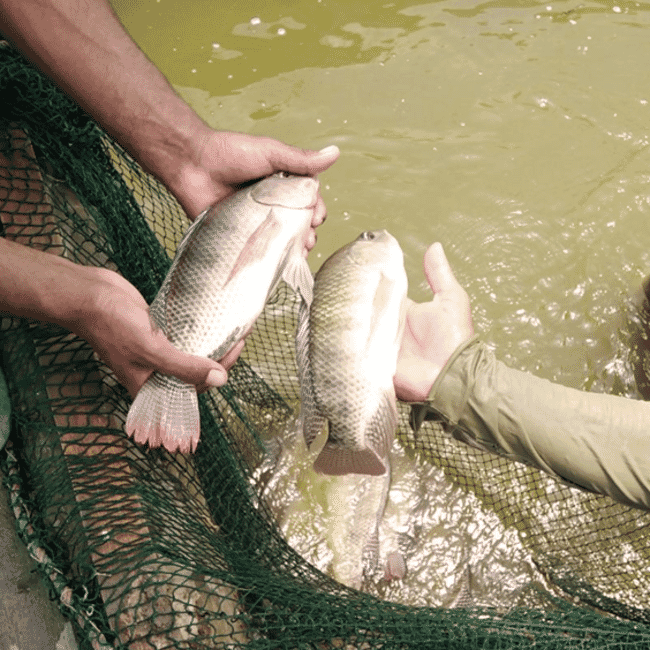
Al Sharaki's main goal was to provide juveniles for his own farm and sell any surplus, but he now sells all his fry
What farming systems should be expanded?
From my point of view, in the current circumstances, semi-intensive culture in earthen ponds is the cheapest of the other systems. We need an alternative to reduce the cost, even if the cost is low, or systems that improve water consumption, such as biofloc, on the condition that it leads to a gain or reduces the profit margin.
What is the future of fish farming in Egypt?
Aquaculture in Egypt has been practiced since the times of the Pharaohs, and we rank first in African aquaculture output and third in global tilapia production. Fish farming provides healthy and cheap protein for consumers, and the atmosphere of Egypt is suitable for the culture of fresh and marine species.


